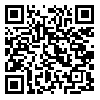Tue, Jan 27, 2026
[Archive]
Volume 7, Issue 1 (Winter 2021)
JCCNC 2021, 7(1): 43-54 |
Back to browse issues page
Download citation:
BibTeX | RIS | EndNote | Medlars | ProCite | Reference Manager | RefWorks
Send citation to:



BibTeX | RIS | EndNote | Medlars | ProCite | Reference Manager | RefWorks
Send citation to:
Vazirnia F, Karimi J, Goodarzi K, Sadeghi M. Effects of Integrative Behavioral Couple Therapy on Infertility Self-efficacy, Dyadic Adjustment, and Sexual Satisfaction in Infertile Couples. JCCNC 2021; 7 (1) :43-54
URL: http://jccnc.iums.ac.ir/article-1-295-en.html
URL: http://jccnc.iums.ac.ir/article-1-295-en.html
1- Department of Counseling, Borujerd Branch, Islamic Azad University, Borujerd, Iran.
2- Department of Psychology, School of Literature and Humanity Sciences, Malayer University, Malayer, Iran. ,j.karimi@malayeru.ac.ir
3- Department of Psychology, Borujerd Branch, Islamic Azad University, Borujerd, Iran.
4- Department of Psychology, Faculty of Literature and Humanities, Lorestan University, Khorramabad, Iran.
2- Department of Psychology, School of Literature and Humanity Sciences, Malayer University, Malayer, Iran. ,
3- Department of Psychology, Borujerd Branch, Islamic Azad University, Borujerd, Iran.
4- Department of Psychology, Faculty of Literature and Humanities, Lorestan University, Khorramabad, Iran.
Abstract: (3825 Views)
Background: Given the rising rate of infertility, the prevalence of mental health disorders in infertile couples is undeniable. The present study aimed to investigate the effects of Integrative Behavioral Couple Therapy (IBCT) on infertility self-efficacy, dyadic adjustment, and sexual satisfaction in infertile couples.
Methods: The present single-case experimental study used a multiple-baseline design. The statistical population of the study included all infertile couples referring to infertility centers in Ahvaz City, Iran, in 2019. The research instruments included the Infertility Self-Efficacy Scale (ISE), the Dyadic Adjustment Scale (DAS), and the Sexual Satisfaction Questionnaire (SSQ). Following a diagnostic interview, 3 couples were selected using convenience sampling technique. Integrative behavioral couple therapy was conducted in twelve 120-minute sessions for the intervention group. The second couple entered the study in the second session of the first couple; the third couple enrolled the treatment plan in the third session of the first couple and the second session of the second couple. All questionnaires were completed in the first, third, sixth, eighth, and tenth sessions; the study participants were followed up and re-assessed two months later. The collected data were analyzed in SPSS using chart analysis, reliable change index, and significance statistics.
Results: The provided IBCT increased infertility self-efficacy (39.04%), dyadic adjustment (25.91%), and sexual satisfaction (55.01%) in infertile couples. Besides, the improvement lasted throughout the follow-up which indicated the effectiveness of IBCT on infertility self-efficiency, dyadic adjustment, and sexual satisfaction in the study subjects.
Conclusion: IBCT helps solve marital problems and is an effective method to improve personal and marital aspects are infertile couples.
Methods: The present single-case experimental study used a multiple-baseline design. The statistical population of the study included all infertile couples referring to infertility centers in Ahvaz City, Iran, in 2019. The research instruments included the Infertility Self-Efficacy Scale (ISE), the Dyadic Adjustment Scale (DAS), and the Sexual Satisfaction Questionnaire (SSQ). Following a diagnostic interview, 3 couples were selected using convenience sampling technique. Integrative behavioral couple therapy was conducted in twelve 120-minute sessions for the intervention group. The second couple entered the study in the second session of the first couple; the third couple enrolled the treatment plan in the third session of the first couple and the second session of the second couple. All questionnaires were completed in the first, third, sixth, eighth, and tenth sessions; the study participants were followed up and re-assessed two months later. The collected data were analyzed in SPSS using chart analysis, reliable change index, and significance statistics.
Results: The provided IBCT increased infertility self-efficacy (39.04%), dyadic adjustment (25.91%), and sexual satisfaction (55.01%) in infertile couples. Besides, the improvement lasted throughout the follow-up which indicated the effectiveness of IBCT on infertility self-efficiency, dyadic adjustment, and sexual satisfaction in the study subjects.
Conclusion: IBCT helps solve marital problems and is an effective method to improve personal and marital aspects are infertile couples.
Full-Text [PDF 976 kb]
(1890 Downloads)
| | Full-Text (HTML) (1965 Views)
● Integrative behavioral couple therapy effectively improves infertility self-efficacy in the infertile couples.
● Integrative behavioral couple therapy improved dyadic adjustment in the infertile couples.
● Integrative behavioral couple therapy increased sexual satisfaction in the infertile couples.
Plain Language Summary
Infertility is a stressful and unexpected shock for most couples. The stressful experience of infertility is associated with various psychological issues, including increased stress levels, depression, feelings of inefficiency, and marital problems. Infertile couples need to eliminate mental weaknesses and psychological traumas; therefore, strengthening positive psychological characteristics may prove effective in this regard. Integrative behavioral couple therapy is among the most important intervention programs. In general, this study suggested that integrative behavioral couple therapy is effective in improving infertility self-efficacy, dyadic adjustment, and sexual satisfaction in infertile couples.
● Integrative behavioral couple therapy improved dyadic adjustment in the infertile couples.
● Integrative behavioral couple therapy increased sexual satisfaction in the infertile couples.
Plain Language Summary
Infertility is a stressful and unexpected shock for most couples. The stressful experience of infertility is associated with various psychological issues, including increased stress levels, depression, feelings of inefficiency, and marital problems. Infertile couples need to eliminate mental weaknesses and psychological traumas; therefore, strengthening positive psychological characteristics may prove effective in this regard. Integrative behavioral couple therapy is among the most important intervention programs. In general, this study suggested that integrative behavioral couple therapy is effective in improving infertility self-efficacy, dyadic adjustment, and sexual satisfaction in infertile couples.
Type of Study: Research |
Subject:
General
Received: 2020/03/2 | Accepted: 2020/09/7 | Published: 2021/02/1
Received: 2020/03/2 | Accepted: 2020/09/7 | Published: 2021/02/1
Send email to the article author
| Rights and permissions | |
 |
This work is licensed under a Creative Commons Attribution-NonCommercial 4.0 International License. |






